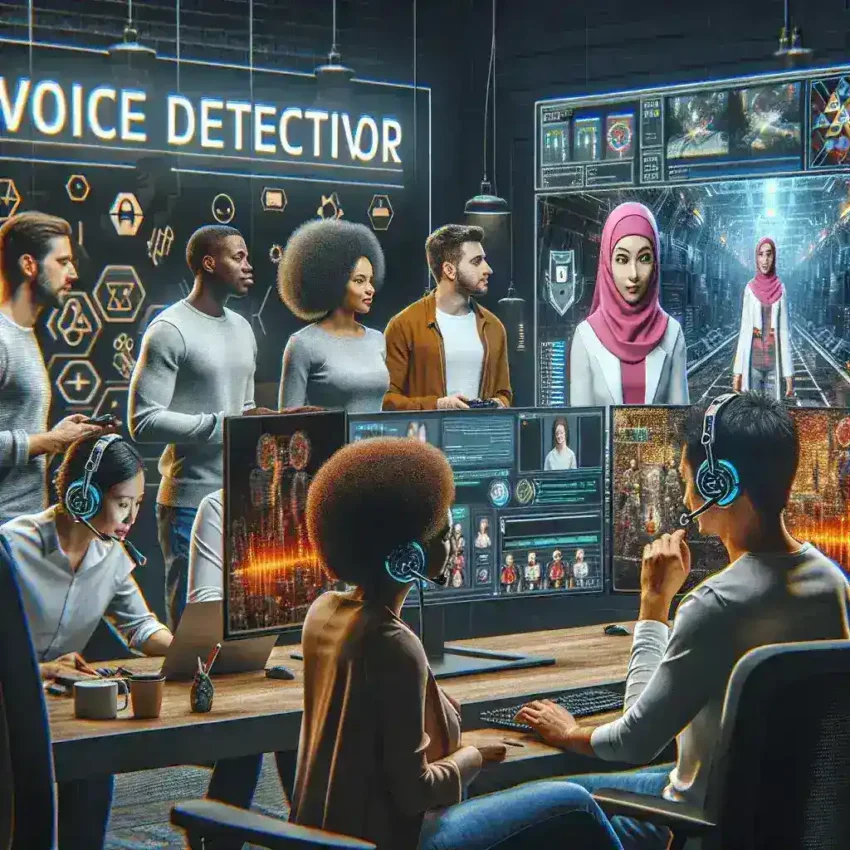Introduction
In the ever-evolving landscape of video game development, the push for more immersive and engaging experiences is at the forefront of innovation. Epic Games, a stalwart in the gaming industry, is experimenting with AI-generated conversations for non-playable characters (NPCs) within its acclaimed Unreal Engine. This ambitious initiative aims to elevate storytelling and interaction in games, creating more dynamic and lifelike experiences for players. In this article, we will delve into the implications of this technology, its potential impact on the gaming world, and what the future may hold.
The Role of NPCs in Gaming
NPCs have long been integral to enriching the gaming experience. These characters populate game worlds, provide quests, offer dialogue, and contribute to the narrative. However, the depth of interaction has often been limited by scripted dialogues, which can lead to repetitive and predictable gameplay. As players seek more engaging narratives and realistic interactions, the need for innovation in NPC dialogue has become paramount.
Historical Context
The evolution of NPCs has mirrored the technological advancements in gaming. From the simplistic characters in early arcade games to the complex AI-driven entities seen in contemporary titles, the journey has been remarkable. Initially, NPCs were mere avatars with limited responses, but the introduction of branching dialogue trees and basic AI algorithms began to enhance interactions. Yet, the reliance on pre-written scripts has persisted as a bottleneck, often leaving players wanting more authenticity.
Epic Games’ Vision for AI-Generated Conversations
Epic Games is at the forefront of addressing these challenges by harnessing the power of artificial intelligence. By integrating AI into Unreal Engine, they aim to create NPCs capable of generating unique dialogues in real-time. This initiative promises to transform how players interact with characters, making encounters feel more organic and less scripted.
How AI-Generated Conversations Work
The technology behind AI-generated NPC conversations involves a combination of machine learning algorithms and natural language processing (NLP). These systems analyze vast datasets of dialogue, learning patterns and nuances of human conversation. Consequently, NPCs can respond contextually, adapting their dialogue based on player interactions and prior choices.
Key Features of AI-Generated NPC Dialogues
- Dynamic Responses: NPCs can provide varied responses based on player actions and previous dialogues, creating a more immersive experience.
- Contextual Awareness: AI allows NPCs to understand the context of conversations and respond appropriately, enhancing realism.
- Personality Differentiation: Each NPC can possess a unique personality, leading to distinctive conversation styles that resonate with players.
The Benefits of AI-Driven Conversations
The integration of AI in NPC dialogues offers several advantages:
1. Enhanced Immersion
By creating dialogues that evolve dynamically, players are more likely to feel immersed in the game world. The unpredictability of conversations can lead to richer storytelling experiences.
2. Increased Replayability
Games featuring AI-generated conversations offer greater replay value. Players can experience new interactions each time they play, as NPCs respond differently to their choices.
3. Reduced Development Time
Traditionally, crafting extensive dialogue scripts is time-consuming. AI can expedite this process by generating content based on guidelines and existing narratives, allowing developers to focus on other creative aspects.
Challenges and Considerations
While the prospects of AI-generated NPC conversations are exciting, they are not without challenges:
1. Quality Control
Ensuring that AI-generated content maintains a high standard of quality is crucial. Developers must implement robust testing to avoid inconsistencies and ensure that dialogues make sense.
2. Ethical Implications
The use of AI in storytelling raises ethical questions regarding authorship and the representation of characters. Game developers must navigate these waters carefully to avoid potential pitfalls.
3. Balancing AI and Human Input
While AI can enhance dialogues, maintaining a balance between AI-generated content and human-written scripts is essential to preserve narrative integrity.
Future Predictions
The testing of AI-generated conversations by Epic Games is just the beginning. As the technology matures, we can expect:
1. More Realistic NPCs
NPCs will evolve further, exhibiting behaviors and conversational styles that closely mimic human interactions.
2. Increased Player Agency
Players will have greater agency in how they shape narratives, with NPCs responding to an ever-wider range of choices.
3. Broader Applications Beyond Gaming
The implications of this technology extend beyond gaming. Industries such as virtual reality training, customer service, and entertainment may also benefit from AI-generated interactions.
Conclusion
Epic Games’ foray into AI-generated NPC conversations signifies a pivotal moment in game development. By embracing artificial intelligence, the company is redefining the potential of interactive storytelling. As this technology evolves, players can anticipate a more engaging, immersive, and unique gaming experience. The future of NPC interactions is bright, and we are only scratching the surface of what is possible.

